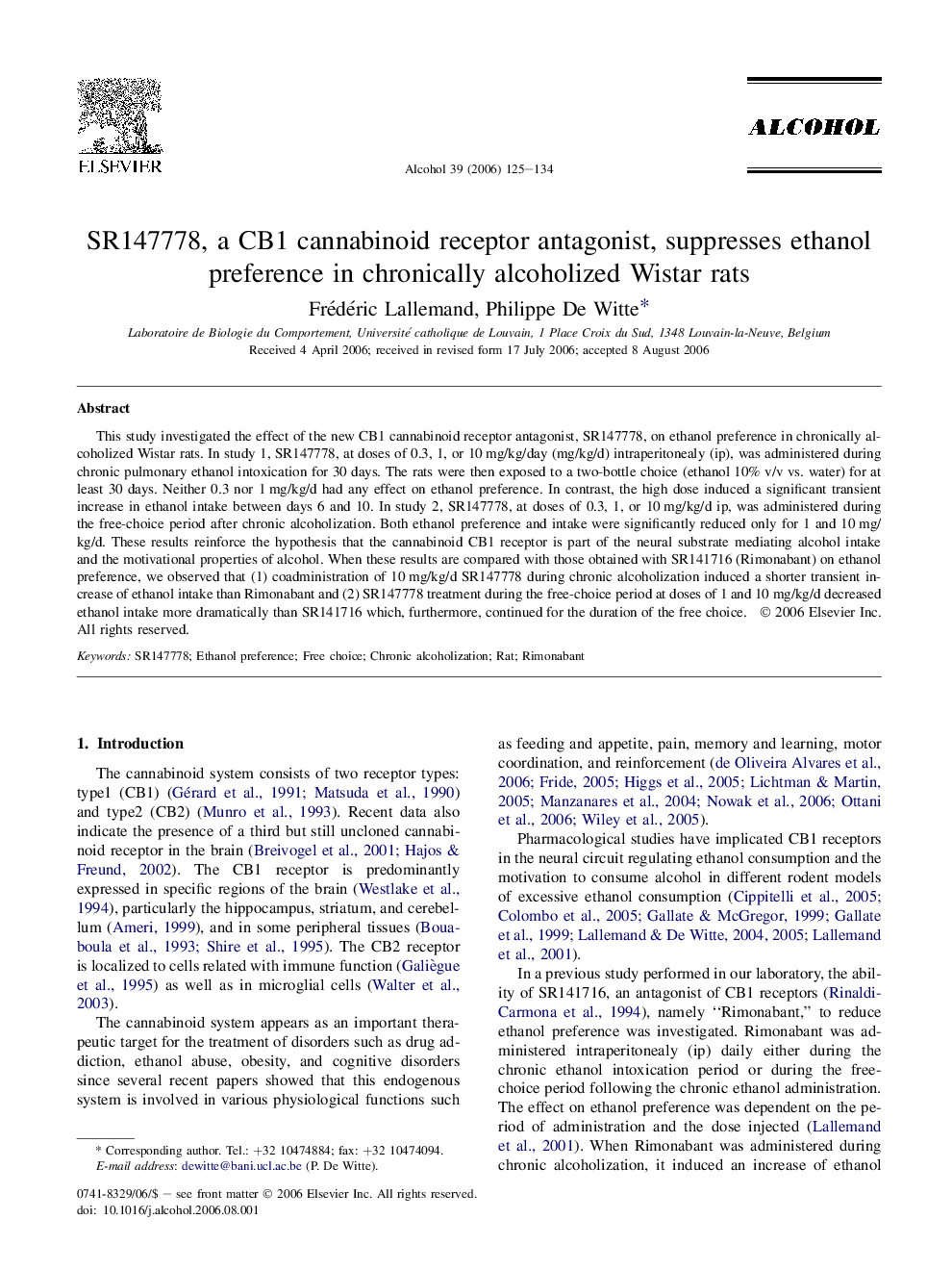| Article ID | Journal | Published Year | Pages | File Type |
|---|---|---|---|---|
| 1067602 | Alcohol | 2006 | 10 Pages |
This study investigated the effect of the new CB1 cannabinoid receptor antagonist, SR147778, on ethanol preference in chronically alcoholized Wistar rats. In study 1, SR147778, at doses of 0.3, 1, or 10 mg/kg/day (mg/kg/d) intraperitonealy (ip), was administered during chronic pulmonary ethanol intoxication for 30 days. The rats were then exposed to a two-bottle choice (ethanol 10% v/v vs. water) for at least 30 days. Neither 0.3 nor 1 mg/kg/d had any effect on ethanol preference. In contrast, the high dose induced a significant transient increase in ethanol intake between days 6 and 10. In study 2, SR147778, at doses of 0.3, 1, or 10 mg/kg/d ip, was administered during the free-choice period after chronic alcoholization. Both ethanol preference and intake were significantly reduced only for 1 and 10 mg/kg/d. These results reinforce the hypothesis that the cannabinoid CB1 receptor is part of the neural substrate mediating alcohol intake and the motivational properties of alcohol. When these results are compared with those obtained with SR141716 (Rimonabant) on ethanol preference, we observed that (1) coadministration of 10 mg/kg/d SR147778 during chronic alcoholization induced a shorter transient increase of ethanol intake than Rimonabant and (2) SR147778 treatment during the free-choice period at doses of 1 and 10 mg/kg/d decreased ethanol intake more dramatically than SR141716 which, furthermore, continued for the duration of the free choice.
